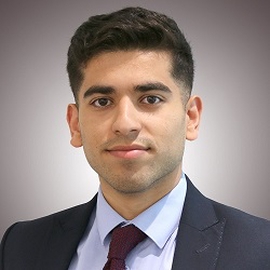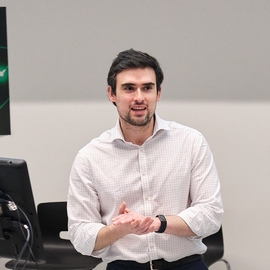Abstract
Integrating post-combustion carbon capture and storage (CCS) facilities into fossil fuel power plants is considered an important step for reaching global carbon emission reduction targets. When the number of gas analyzers in such CCS units is limited, variations in the load of the power plant pose a challenge to determine the gaseous CO2 concentration profile in the absorber. A dynamic hybrid model for estimating the carbon capture absorber’s gaseous CO2 concentration profile has been proposed in this study. The model is built using actual process data collected from a carbon capture pilot plant and it combines data-driven and reaction kinetic (mechanistic) modeling approaches to act as a soft sensor along the absorber column. A subset of the process data is used for training the data-driven models and for estimating the parameters of the mechanistic model respectively. Dimensionality reduction techniques are applied to the data-driven model to reduce the input size and hence the size of the dynamic model elements. The outputs of the two models are fused by comparing the computed covariance matrices. A particular challenge for this work is that the collected process data has missing spatial labels and temporal values for the CO2 concentration measurements. The presented models are obtained using an encoding and interpolation approach for the missing information. For comparison, an alternative approach based on semi-supervised learning has been implemented. The performance of the resulting soft sensors is verified by using process data from previously unseen operating conditions. The soft sensor based on the proposed hybrid model outperforms the soft sensor trained by semi-supervised autoencoder. Overall the results indicate that the proposed approach can estimate the CO2 concentration percentage with an average root mean squared error of 0.123.
Publication
Computers in Industry

Head of Innovation at PE Limited, former PhD student at OptiML (2021-2025)
Akhil is a PhD candidate working at the intersection of machine learning, optimization and control. He has a proven track record in practical problem solving across diverse industries and domains with research contributions published in various conferences and journals. He graduated with a first class/distinction from the University of Strathclyde in Chemical and Process Engineering and worked as a scientific software developer and engineering consultant before commencing his doctoral studies. Akhil is a member of the Autonomous Industrial Systems Lab supervised by Mehmet Mercangoz and he is co-supervised by Antonio del Rio Chanona.

Postdoctoral Researcher at University of Warwick, former PhD student at OptiML (2021-2025)
Zhengang is a PhD candidate at Imperial College London. His PhD research is about data-driven distributionally robust model predictive control.Prior to his PhD research, he holds a Diplom-Ingenieur in Mechatronics from Technische Universität Dresden. His research interests include data-driven optimal control, scientific machine learning, and distributionally robust optimisation.

Principal Investigator of OptiML
Antonio del Rio Chanona is the head of the Optimisation and Machine Learning for Process Systems Engineering group based in thee Department of Chemical Engineering, as well as the Centre for Process Systems Engineering at Imperial College London. His work is at the forefront of integrating advanced computer algorithms from optimization, machine learning, and reinforcement learning into engineering systems, with a particular focus on bioprocess control, optimization, and scale-up. Dr. del Rio Chanona earned his PhD from the Department of Chemical Engineering and Biotechnology at the University of Cambridge, where his outstanding research earned him the prestigious Danckwerts-Pergamon award for the best PhD dissertation of 2017. He completed his undergraduate studies at the National Autonomous University of Mexico (UNAM), which laid the foundation for his expertise in engineering.